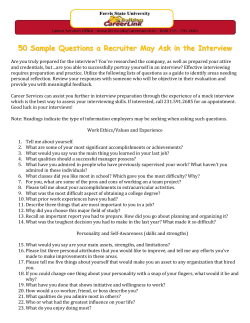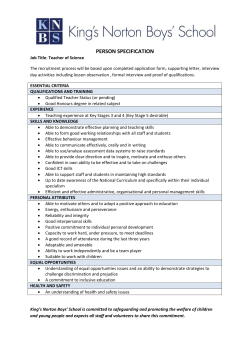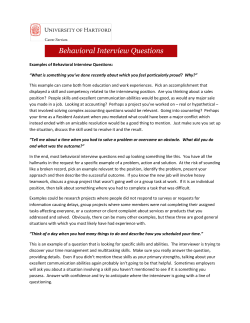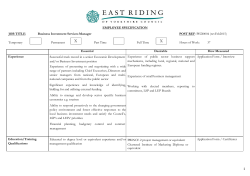
SANHANES
South African National Health And Nutrition Examination Survey (SANHANES-1) FUNDERS SANHANES TEAM Infant feeding SANHANES Breastfeeding status of children under 6 months of age, SA 2012 n = 243 17.5% 7.4% Never breastfed 75.1% Exclusively breastfeeding Breastfed but not exclusively SANHANES Percentage of children aged 12-15 months who were being breastfed at the time of the interview, SA 2012 n = 178 35.8% Breastfed at the time of the interview 64.2% Not breastfed at the time of the interview SANHANES Exclusive breastfeeding % Age distribution of exclusive breastfeeding in South Africa according to DHS 2003 and SANHANES1 2012 14 12 10 12.7 12.2 11.2 8.9 8 6 4 2.7 2.1 2 0.7 1.3 0 <2 2-3 4-5 Age group in months DHS 2003 SANHANES1 SANHANES 0.4 6-7 0.0 8-9 Age of introduction of semi-solid or solid foods in children under 2 years of age, SA 2012 100.0 Percentage 80.0 63.5 60.0 30.7 40.0 20.0 5.8 0.0 < 6 months 6-8 months SANHANES 9-18 months First semi-solid or solid food eaten by children under 2 years of age, SA 2012 Percentage 60.0 40.0 20.0 51.2 29.0 2.2 4.4 0.0 SANHANES 1.8 3.1 8.1 0.2 Prevalence and treatment of Diarrhoea SANHANES Prevalence of diarrhoea in the two weeks preceding the interview in children under 5 years by age, SA 2012 Percentage 30 20 19.7 17.9 11.6 10 8.4 4.8 5.3 0 <6 months 6 – 11 months 12 – 23 months 24 – 35 months Age SANHANES 36 – 47 months 48 – 59 months Prevalence of diarrhoea in the two weeks preceding the interview in children under 5 years by locality, SA 2012 20 Percentage 13.6 10.2 10 9.4 9.1 0 Urban formal Urban informal Rural formal Locality SANHANES Rural informal 100.0 Treatment of diarrhoea in the two weeks preceding the interview in children under 5 years by age and locality, SA 2012 80.0 Percentage 67.4 60.5 60.0 53.9 57.0 45.9 40.0 32.1 20.0 0.0 <2 years 2-5 years Rehydrat / Hydrol / Hydrassist Urban formal Home-made sugar salt solution SANHANES Prevalence and treatment of Respiratory Disease SANHANES Prevalence of respiratory disease in the two weeks preceding the interview in children under 5 years by age, SA 2012 50 Percentage 40 34.7 29.2 31.6 38.9 35.7 37.7 33.5 31.9 30.3 25.8 30.8 25.6 30 20 10 0 <6 months 6 – 11 months 12 – 23 months Fever in the last 2 weeks 24 – 35 months 36 – 47 months Coughing in the last 2 weeks SANHANES 48 – 59 months 100.0 80.0 Treatment of respiratory disease in the two weeks preceding the interview in children under 5 years by age and locality, SA 2012 65.1 67.4 61.6 56.7 60.0 33.4 25.9 30.2 40.0 20.0 27.5 10.0 8.9 8.2 5.1 0.0 <2 years 2-5 years Age Public sector Urban formal Rural informal Locality Private sector SANHANES Other sources Older children SANHANES Perceived ability of children aged 10-14 years to change their dietary behaviours, SA 2012 51.0 Percentage 60.0 40.0 30.2 18.8 20.0 0.0 High score (8-10) Medium score (4-7) Low score (0-3) Based on 10 questions… if you had to could you…. 1. Put less margarine on your bread 6. Eat sweets less often 2. Eat fewer chips 7. Drink cool drinks less often 3. Buy fruit instead of chips 8. Eat brown bread instead of white bread 4. Put less sugar in your tea/coffee 9. Eat more vegetables 5. Put less sugar in your cereal/porridge 10. Eat more fruit SANHANES Beliefs regarding the development of obesity, SA 2012 How much you eat and drink can make a difference in your chance of becoming fat 30.4 69.6 The things I eat and drink now are healthy, so there is no need for me to make changes 36.2 63.8 What you eat can make a difference in your chance of becoming fat and getting diseases like heart disease or cancer 26.8 73.2 What you eat can make a difference in your chance of becoming fat 25.3 Starchy food like bread, potatoes and rice make people fat 25.5 74.7 74.5 0 No 20 Yes SANHANES 40 60 80 100 100 The things I eat and drink now are healthy, so there is no need for me to make changes by race, SA 2012 70.0 80 69.7 56.4 Percentage 62.5 60 40 20 0 Black African White SANHANES Coloured Asian/Indian The things I eat and drink now are healthy, so there is no need for me to make changes by race, SA 2012 Prevalence: Hypertension : Diabetes : Diabetes to be excluded : Overweight : Obese : Social science that makes a difference 35.5% 10.5% 9.1% 23.9% 26.4% Dietary behaviour of children 10-14 years in relation to eating breakfast, SA 2012 • 19% of children do not eat breakfast at home in the morning 50 Percentage 40 (n=2408) 39.2 33.9 33 30 19.2 15.3 20 10 0 Not hungry in the No food in the People at home Cannot get up morning house to eat for do not eat early enough to breakfast breakfast have breakfast SANHANES Cannot make their own breakfast Dietary behaviour of children aged 10-14 years in relation to taking lunchboxes, SA 2012 • 51% of children do not take a lunchbox to school 50 (n=2406) 37.2 Percentage 40 30 20 29.8 18.3 18 17.1 Other children will want their food Do not have a nice container to put lunch in 10 0 Food at school is Nothing at home No-one at home enough for the to put in the to help make a whole day lunchbox lunchbox SANHANES Percentage of children aged 10-14 years who take money to school, SA 2012 100.0 Percentage 80.0 60.0 51.3 33.2 40.0 20.0 15.5 0.0 Yes No SANHANES Sometimes 60.0 Frequency of taking money to school among children aged 10-14 years, SA 2012 51.4 48.6 50.0 Percentage 40.0 30.0 20.0 10.0 0.0 Every day 2 or 3 times a week SANHANES Amount of money children aged 10-14 years take to school, SA 2012 100.0 76.5 Percentage 80.0 60.0 40.0 16.2 20.0 5.0 1.2 1.2 R21.00 - R40.00 > R40.00 0.0 R0.00 - R5.00 R5.50 - R10.00 R11.00 - R20.00 SANHANES 30.0 Attempts to gain or lose weight among children aged 10-14 years by sex, SA 2012 25.0 Percentage 20.0 15.9 16.7 14.0 15.0 10.3 10.0 5.0 0.0 Gain weight Lose weight Males Females SANHANES THANK YOU THANK YOU Questions used to calculate exclusive breastfeeding • For children currently being exclusively breastfed (0-6 months) • Is he/she still being breastfed (YES) • What was the first drink other than breast milk that he/she received (MISSING) • At the moment does he/she get any milk feeds other than breast milk (NO) • What was the first semisolid (with a spoon or fingers) food he/she ate (MISSING) SANHANES
© Copyright 2025









